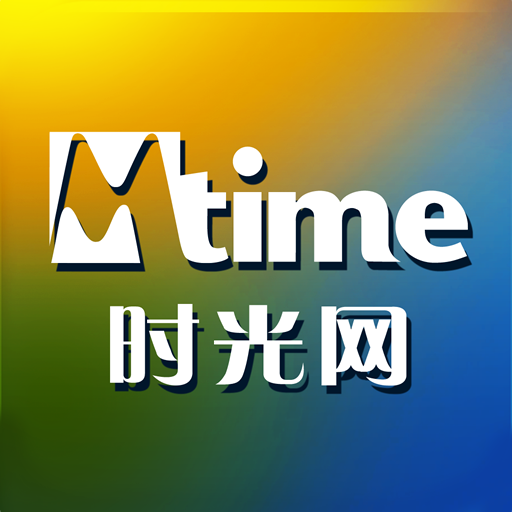(单词翻译:单击)
Now that Hollywood has mostly figured out how to get its biggest movies approved for release in China, studio marketers here are grappling with a new puzzle: What is the best way to woo China's ticket buyers?
如今好莱坞已经基本上摸清如何让它们的顶级大制作影片获得在中国的放映许可,但电影公司的营销人员又要应对另一个谜题:怎样才是吸引中国电影消费者的最佳方式?
Trailers and television advertisements, the two most effective methods to drum up interest, are difficult marketing tools to use in China. Chinese theaters do not typically play trailers. The cost of advertising on TV can be exorbitant, in part because studios must buy time at the last minute. China usually limits foreign films to an advertising window of a few weeks.
电影预告片和电视广告是激发人们对电影好奇心的两种最有效的手段,但在中国,这些方法使用起来有些困难。中国的电影院一般不放映预告片。而电视广告的花费则过高,这部分是由于电影公司必须等到最后一刻才能购买广告时间。因为中国通常会给外国电影的广告限定一个几周的窗口期。
Instead, film companies pay for outdoor banners and signs, advertise online, team up with local promotional partners and, increasingly, call a company with enormous reach that few people outside of China have ever heard of: Mtime.
电影公司因此改为出钱打户外横幅和广告牌、网络广告,与当地市场推广伙伴合作,并越来越多地求助于一个外国人很少听说、但影响力巨大的公司:时光网。

Founded in 2005 in Beijing by Kelvin Hou, a former Microsoft executive, Mtime started as an online listing of movie times, hence the name. Then a film database was built and added. Next came a movie-news service, aggregation of user-submitted reviews, a movie-scoring system and an online ticket service for 3,000 theaters. Now attracting 160 million unique desktop and mobile users a month, according to Mr. Hou, Mtime is effectively Fandango, IMDb, Rotten Tomatoes and Yahoo Movies rolled into one.
2005年,时光网由前微软高管侯凯文(Kelvin Hou)在北京创立,一开始是一个分享电影放映排期的网站,网站的名字正由此而来。后来公司加入了一个电影数据库。随后又开始提供电影新闻服务、用户影评聚合、电影评分系统,以及一个包括3000家影院的网上购票服务。据侯凯文说,如今该网站每月吸引1.6亿电脑和手机用户。时光网相当于是Fandango、IMDb、烂番茄(Rotten Tomatoes)以及雅虎电影(Yahoo Movies)的综合体。
And for a fee, Mtime will promote movies through all of these services, helping studios to quickly cover a market they covet but do not yet fully understand.
时光网还有在这些渠道推广电影的收费服务,帮助电影公司迅速覆盖这个它们觊觎已久却又不完全了解的市场。
Next comes merchandising: Mtime, which counts Fidelity Growth Partners and CBC Capital among its backers, has started designing movie-themed products that are sold on its website and inside Chinese multiplexes. Mtime began opening these "merchandising centers," many in partnership with Wanda Cinemas, China's largest theater operator, in January. Mr. Hou will have 80 of these centers operating by December.
下一步就是衍生品开发:在富达亚洲风险投资(Fidelity Growth Partners Asia)和宽带资本(CBC Capital)等公司的支持下,时光网已经开始设计电影主题的相关产品,并在其网站和中国的电影院内销售。今年一月,时光网还成立了衍生品销售体验中心,其中相当一部分是与中国最大的院线万达影城合作。到今年十二月,侯凯文将开办80家这样的中心。
In itself, the ability to sell merchandise inside Chinese theaters is tantalizing to Hollywood, which is trying to improve the profitability of releasing films in China, a movie market that is soon expected to surpass the United States as the world's largest. Ticket sales totaled $4.8 billion last year, a 34 percent increase from a year earlier, according to the Motion Picture Association of America. But foreign studios typically receive a 25 percent share of ticket sales from China; Hollywood's cut from movies released in North America is closer to 50 percent.
好莱坞一直想增加在中国上映电影的利润,因此仅在中国影院内销售衍生品这一项就已经极具诱惑力。据预计,中国电影市场很快就将超过美国成为世界最大的电影市场。根据美国电影协会(Motion Picture Association of America)数据,去年中国的电影票房总收入达48亿美元,较前一年增长了34%。但国外电影公司通常能拿到中国票房收入的25%;而好莱坞从北美票房的分成接近50%。
American studios have long relied on sales of movie-themed products elsewhere in the world, but China has been difficult to crack, in part because cheap knockoffs proliferate overnight. But there appears to be a shift at hand. Disney, for instance, in May opened its first Disney Store in China. Zeng Maojun, president of the Wanda Theater Group, said in a statement that the Mtime partnership "marks an important milestone in China's movie market," with movie merchandise shifting from a niche to "a vital part of the lifestyle market."
在其他地方,美国电影公司很早就已经开始依赖电影主题衍生产品的销售,但中国市场一直都很难打开,迅速蔓延的廉价冒牌产品是其中一个原因。但似乎转变即将到来。比如迪士尼五月在中国开设了第一家迪士尼商店。万达影城总经理曾茂军在一份声明中说,与时光网的合作"标志着中国电影市场的一个重要的里程碑,"电影衍生产品从只服务特定用户群拓展成了"生活用品领域的重要部分。"
Mtime is not alone in this arena. Douban, an arts-focused social network, has as much sway in the movie-review realm, if not more, operating a scoring system based on critiques from tens of thousands of users. For those seeking movie news, Mtime competes with the entertainment sections of Internet companies like Sina, Tencent and Sohu.
时光网并不是这个领域的唯一一家公司。关注文艺的社交网络"豆瓣"同样也拓展到了电影影评领域。豆瓣在成千上万的用户评论的基础上,建立了一个电影评分系统。对那些搜寻电影新闻的人来说,时光网同诸如新浪、腾讯和搜狐等网络公司的娱乐板块是存在竞争的。
Tencent — which owns the wildly popular WeChat messaging service that, marketing executives say, has itself becoming a crucial movie promotional tool — is also a major movie ticket seller, along with Baidu and the Alibaba Group.
腾讯公司拥有广受欢迎的微信,其市场部门高管表示,微信已经成为电影推广的一个关键工具。腾讯、百度和阿里巴巴集团都是主要的电影售票商。
But no competitor has integrated all of these functions under one umbrella in the way Mtime has. That integration plays a role in its influence on Hollywood, and not just because Mtime has created an environment of one-stop promotional shopping.
不过没有任何一个竞争对手像时光网那样,把所有的功能都整合在一个体系之内。这种整合也是它对好莱坞产生影响的地方,不只是因为时光网为一站式促销购物创造了一个环境。


